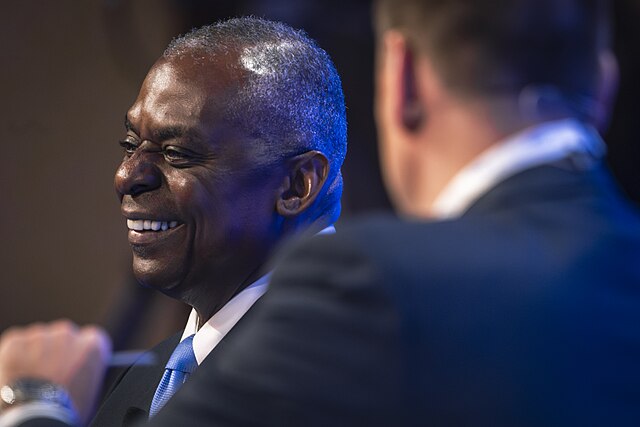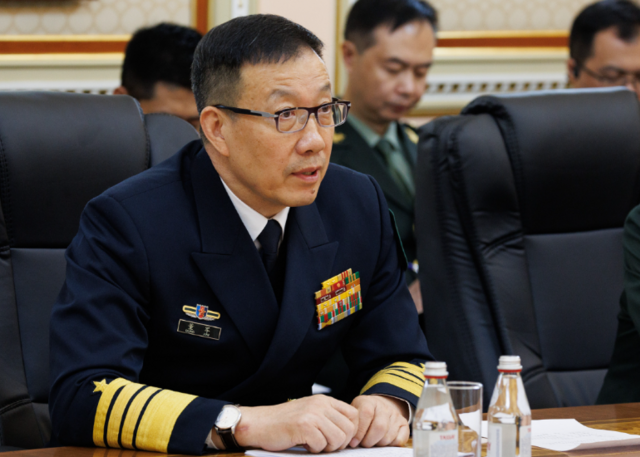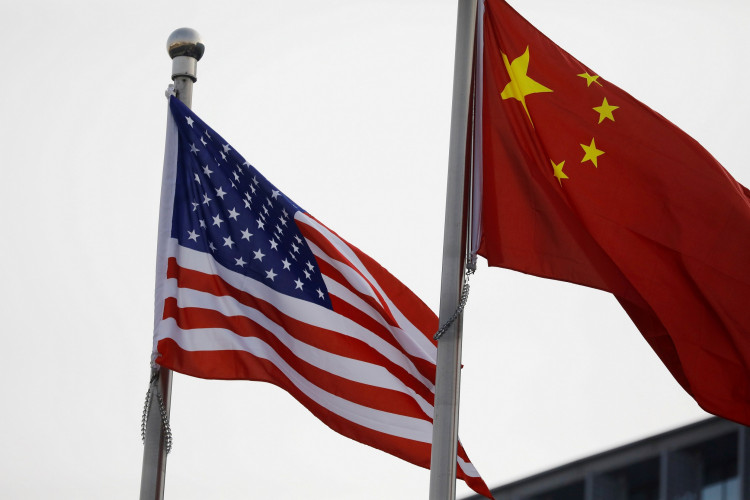U.S. Secretary of Defense Lloyd Austin and Chinese Defense Minister Admiral Dong Jun presented starkly contrasting visions of regional security over the weekend at the International Institute of Strategic Studies Shangri-La Dialogue held in Singapore. The differing perspectives underscored the deepening divide between the two superpowers over issues of regional stability and security.
Austin reaffirmed the U.S. commitment to the Indo-Pacific region despite ongoing conflicts in Europe and the Middle East. He emphasized the importance of U.S. partnerships and collaborative efforts in maintaining regional stability. "The United States is deeply committed to the Indo-Pacific. We're all in. And we're not going anywhere," Austin declared, underscoring that the U.S. sees the Indo-Pacific as the priority theater of operations.
In stark contrast, Admiral Dong Jun focused on China's firm stance regarding Taiwan and the South China Sea. He issued a stern warning that China would take "resolute actions to curb Taiwan independence," accusing the U.S. of testing China's redlines on Taiwan. "Anyone attempting to separate Taiwan from China is bound to be smashed to pieces and bring about their own ruin," Dong asserted, highlighting the non-negotiable nature of Taiwan in China's strategic considerations.
The divergence in terminology used by the two defense chiefs further highlighted their differing perspectives. Austin referred to the region as the 'Indo-Pacific,' which includes South Asia, while Dong used the term 'Asia-Pacific,' a narrower definition that excludes South Asia. This semantic difference reflects broader strategic and geopolitical distinctions.

U.S. Secretary of Defense Lloyd Austin
Austin's speech, titled "United States' Strategic Partnerships in the Indo-Pacific," advocated for resolving disputes through dialogue rather than coercion or conflict. He criticized recent Chinese military drills around Taiwan, describing them as punitive measures against Taiwan independence forces. "The harassment that the Philippines has faced is dangerous, plain and simple," Austin said, referencing Chinese actions against Philippine resupply efforts at Second Thomas Shoal.
Austin also lauded Philippines President Ferdinand Marcos Jr.'s call for adherence to the rule of law in the South China Sea. "President Marcos spoke eloquently last night about the rule of law in the South China Sea. And he's right," Austin noted, emphasizing the importance of respecting international law and the rights of all nations to freely navigate and utilize maritime resources.
In contrast, Dong's speech, "China's Approach to Global Security," underscored China's willingness to cooperate with other nations while vehemently opposing foreign interference in its internal affairs, particularly regarding Taiwan. Dong accused the U.S. of inciting Taiwan independence forces and undermining regional stability. "We will not allow hegemonism and power politics to undermine the interests of the Asia-Pacific countries," Dong proclaimed, framing China as a defender of regional sovereignty against foreign intervention.

Chinese Defense Minister Admiral Dong Jun
Dong also addressed the situation in the South China Sea, accusing a "certain country" - an indirect reference to the Philippines - of breaking bilateral agreements and creating false scenarios to mislead the public. "China has exercised great restraint in the face of such infringements and provocations, but there is a limit to our restraint," Dong warned.
During a question-and-answer session, Austin reiterated the U.S. commitment to its mutual defense treaty with the Philippines when asked about potential escalations at Second Thomas Shoal. He also dismissed a Chinese military officer's assertion that NATO expansion caused the Ukraine crisis, prompting applause from the delegates. "The Ukraine crisis obviously was caused by Mr. Putin making a decision to unlawfully invade his neighbor," Austin said, reinforcing the U.S. stance on Russia's aggression.
Dong, on the other hand, sidestepped direct answers to questions and reiterated China's firm stance on Taiwan. He criticized the U.S. for hollowing out the One China Principle and accused it of sending wrong signals to Taiwan independence forces. "This kind of behavior sends wrong signals to Taiwan independence forces and makes them more aggressive," Dong said, reinforcing China's view that U.S. actions are aimed at containing China.





